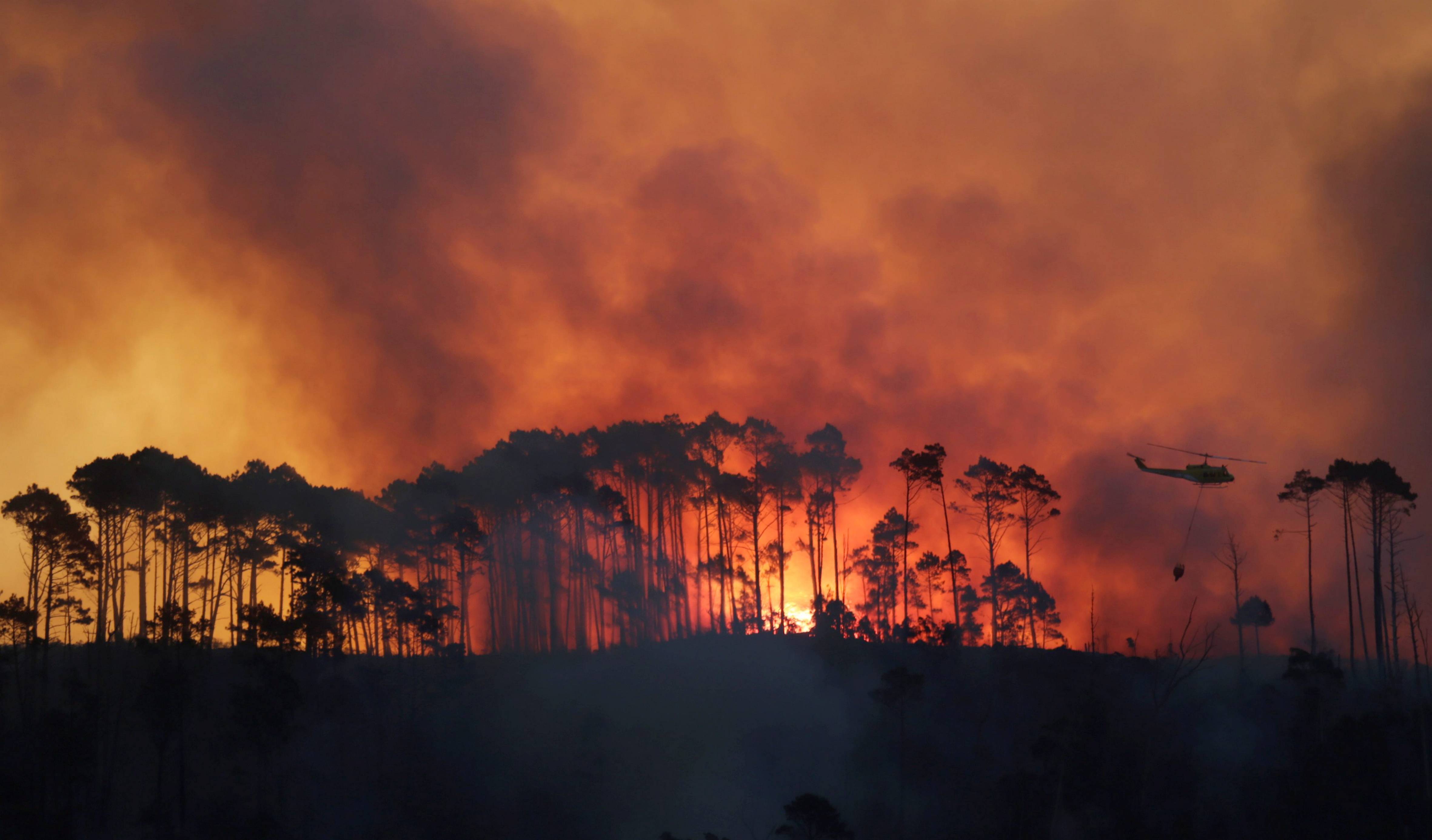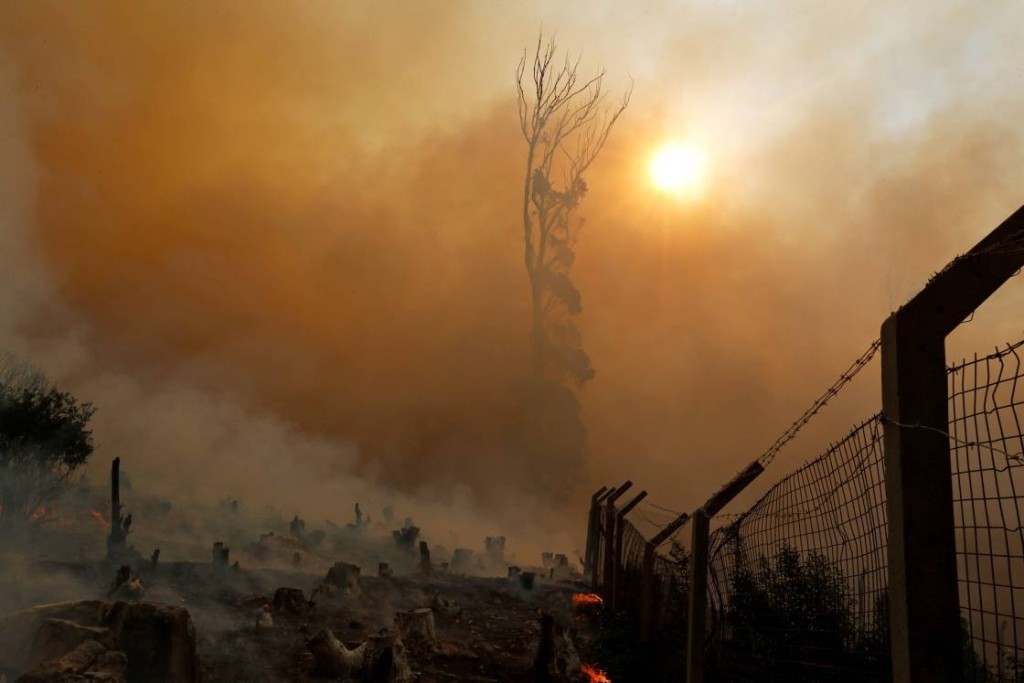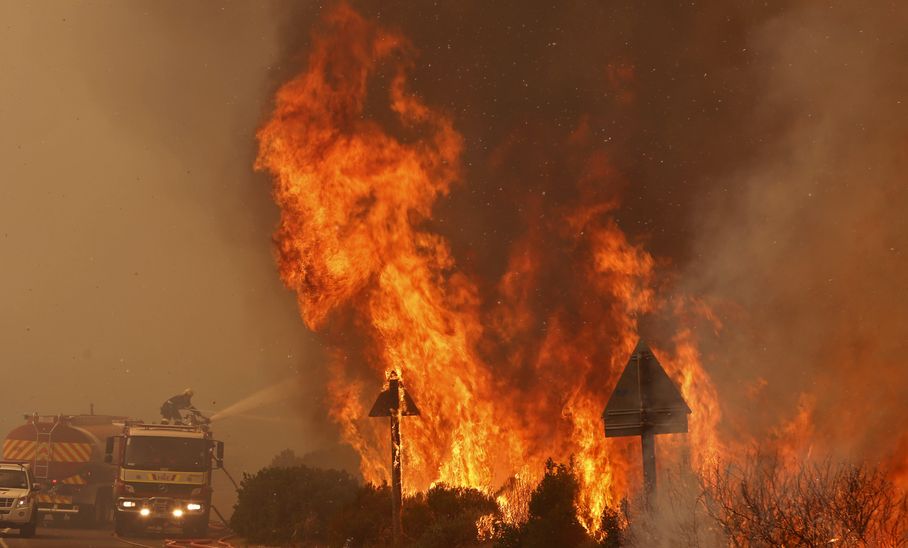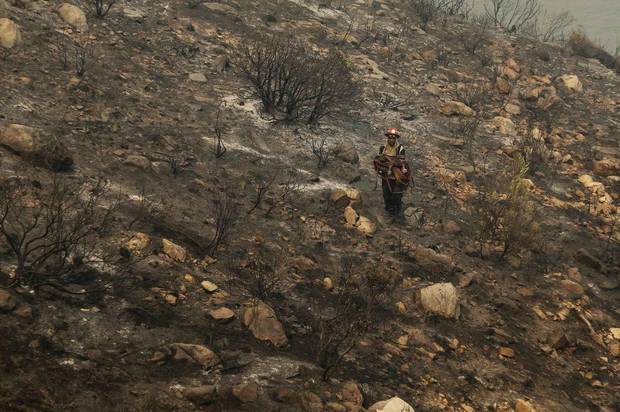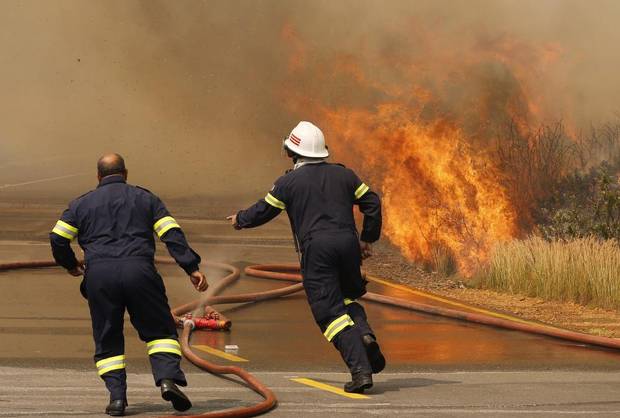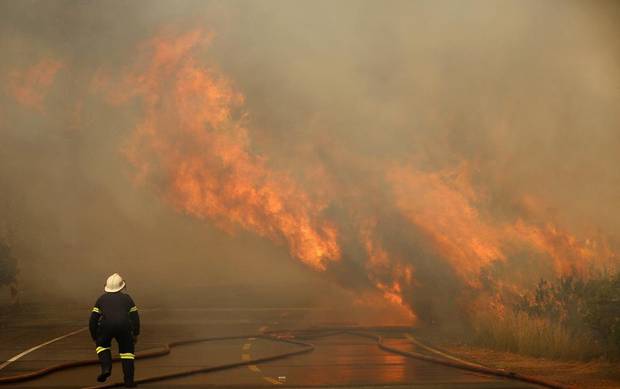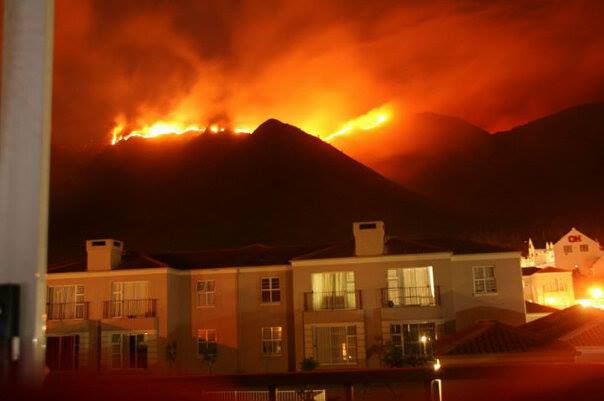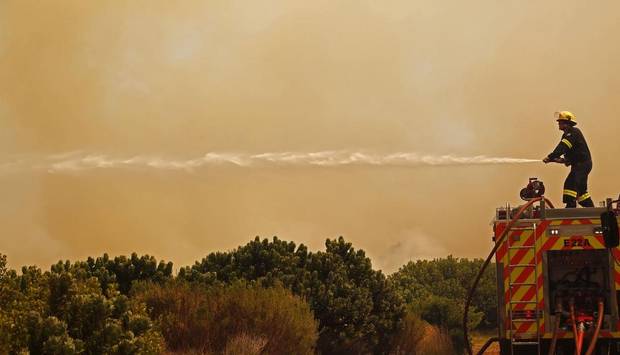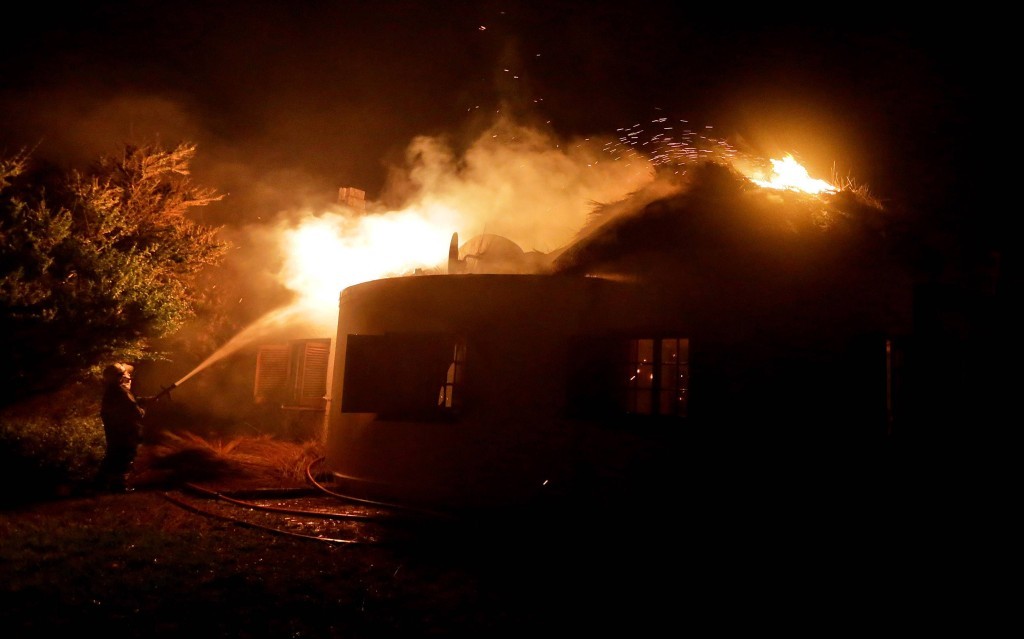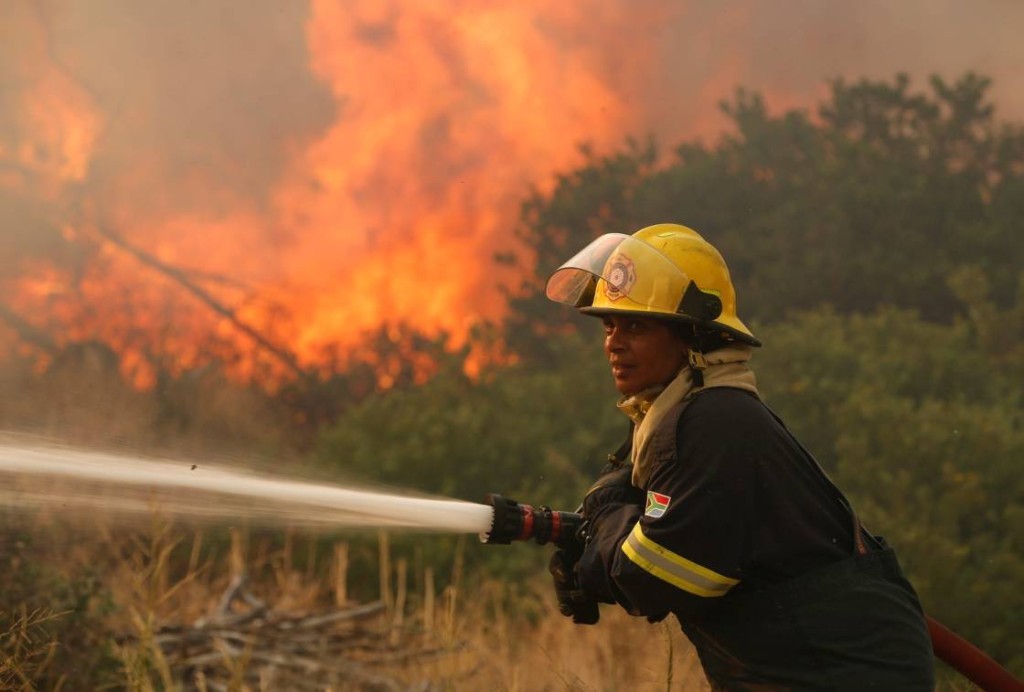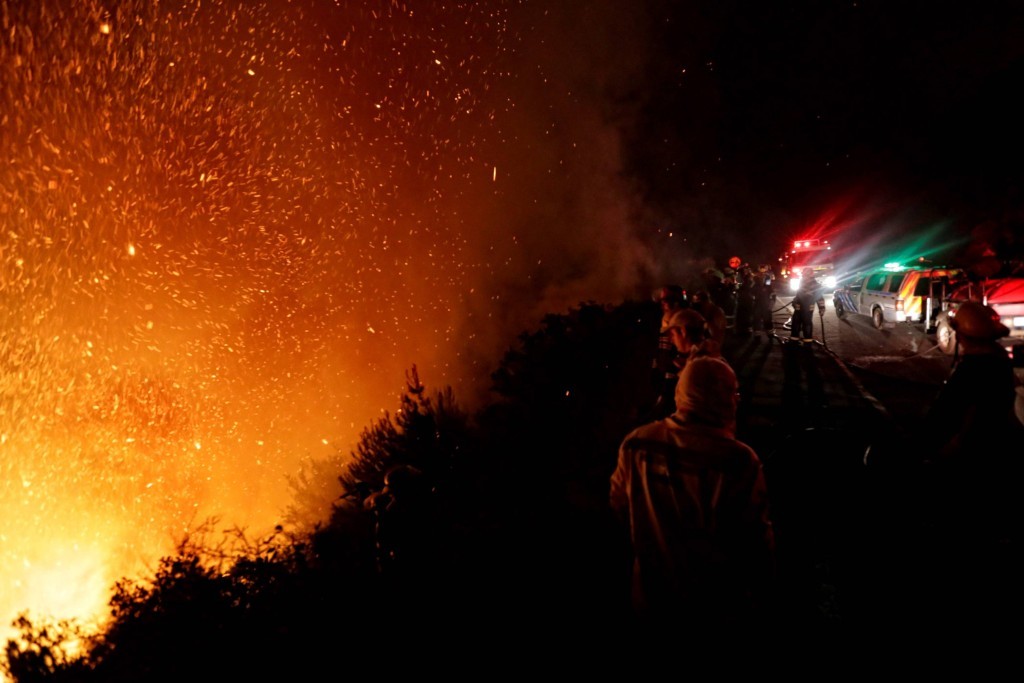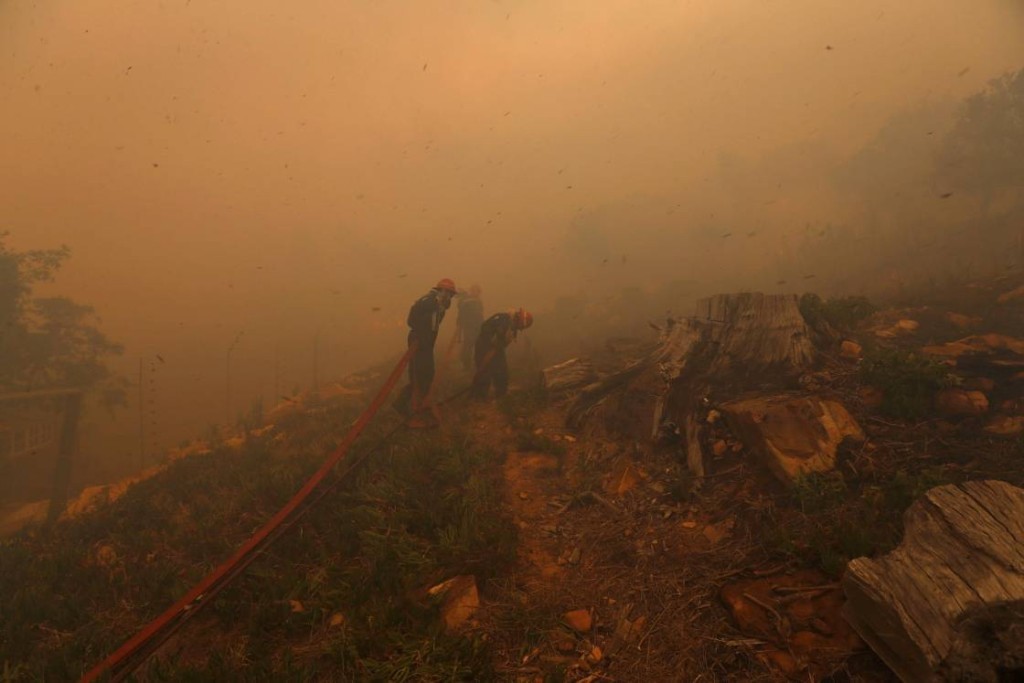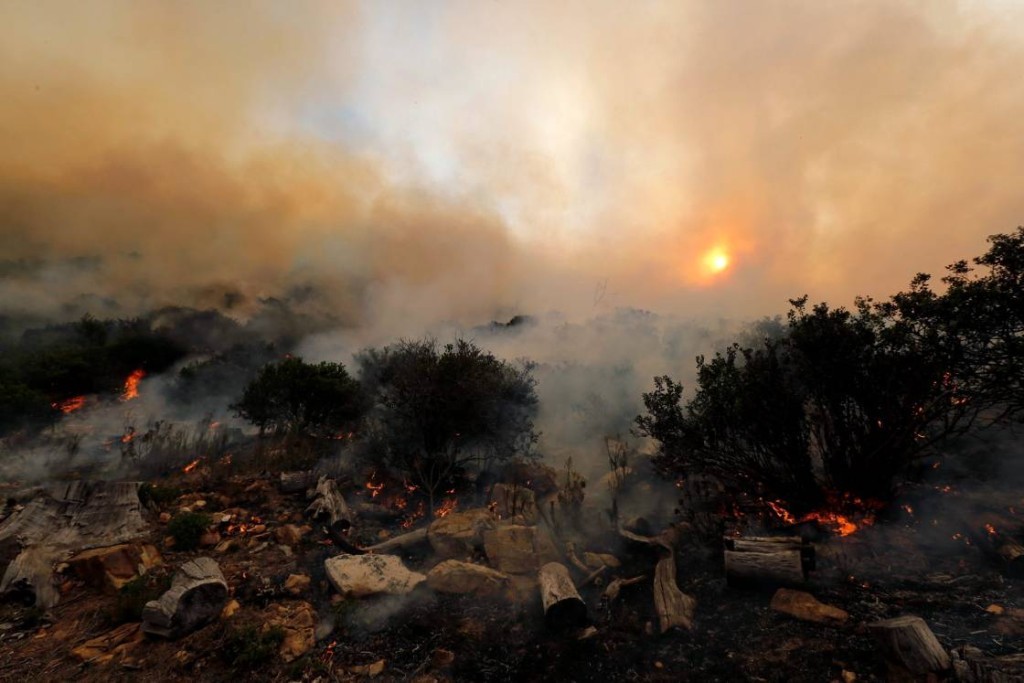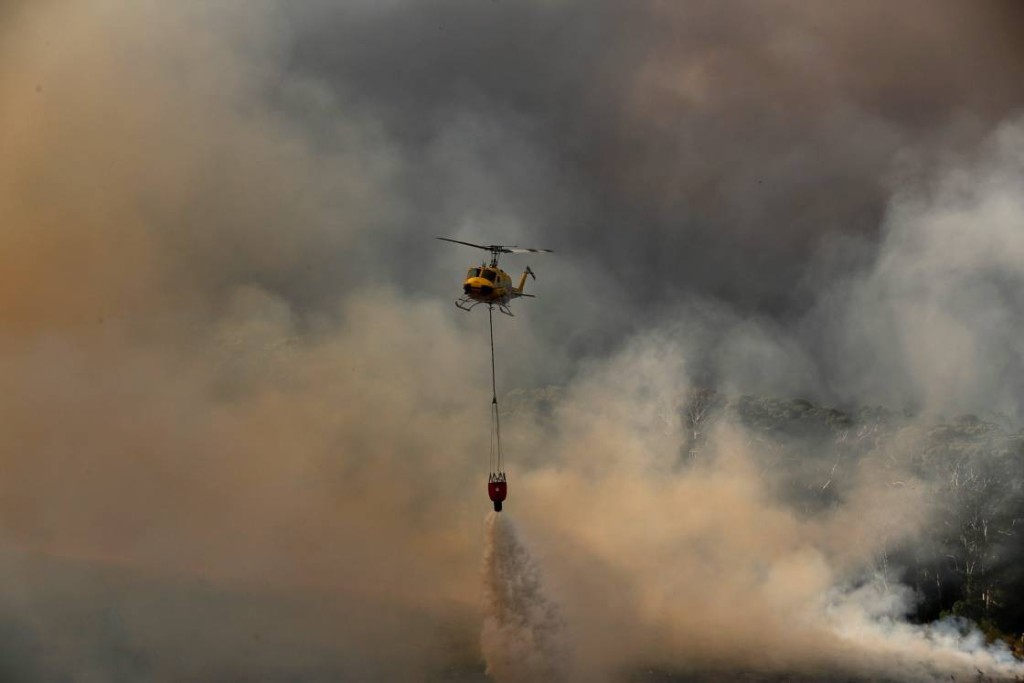As South African firefighters battle to put out the Cape Town Wildfire which has persisted into its fourth day on Table Mountain, help has come from different areas, organizations and people. An estimated 4,000 hectares of land have been destroyed in the fire, according to NBC News, and over five homes have been razed. The cause of the fire is yet to be determined, and as the flames move on, residents in some of the nearby areas have been forced to evacuate their homes and to wait out the fire as far away as they can.
In the words of Fire and Rescue member Theo Lane “The area affected by the change in wind direction is from Kalk Bay, all around the mountain towards the Hout Bay area and then on the opposite side towards Tokai.”
But no matter how much one tries to explain the damage done by the raging flames or the fiery way the flames lick up every obstacle in their way, some things are still better seen than heard. Here are graphic photos that would help you better understand what is going on and how brave the firefighters have been in risking their lives to ensure that the flames will not last another day.
The 12 Apostles Hotel and Spa has been forced to evacuate due to the encroaching wildfire that firefighters are struggling to get under control.
According to Table Mountain National Park fire manager Phillip Prins, the fire is burning on two sides: around the hotel and in Camps Bay. He said it’s not clear what could be happening in the Camps Bay area, but that the fire is surrounding the hotel so they have evacuated.
See Also: 5 South African Natural Resources That Have Changed The World
The Devastating Effects of Cape Town Fire In Photos:
Fighters standing in the midst of thick smoke.
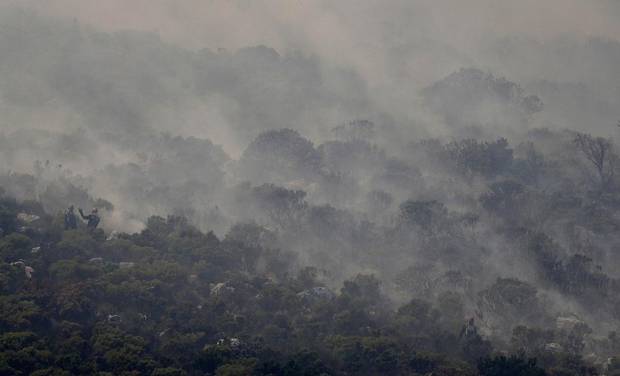
The devastation is as far as the eyes can see.
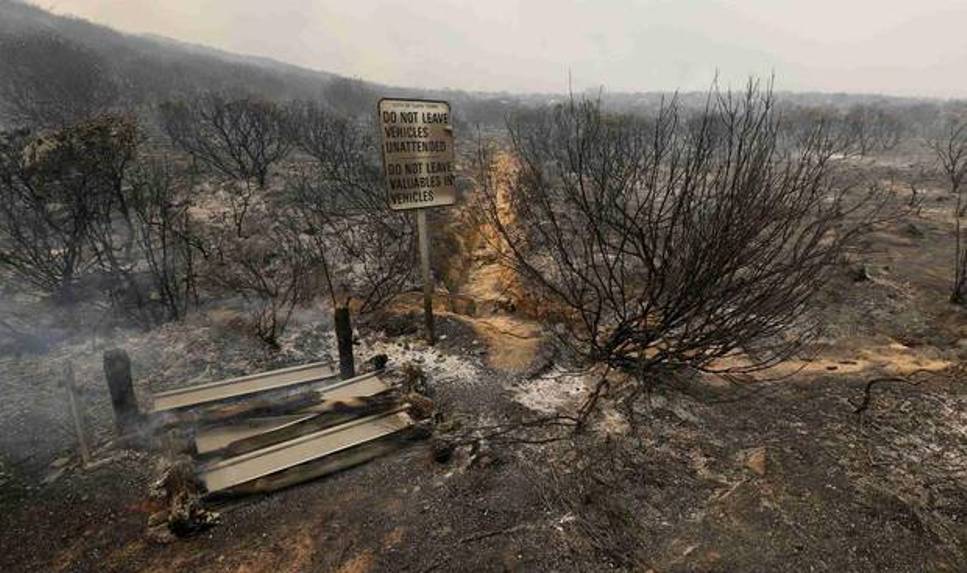
Firefighters, battle part of the fire close to the town of Hout Bay, Cape Town.
A firefighter carriying a hose across a burnt out part of a mountainside along Cape Town’s Chapman’s Peak Drive
Firefighters reacting as flames erupt.
Brave firefighter reacting as the flame encroaches into the road.
The flame which is obviously very intense was fanned by strong winds. While firefighters struggle to contain the blaze, the vegetation keeps fueling the fire.
Firefighters trying to control the blaze near Cape Town’s town of Hout Bay.
Properties getting ravaged in the intense flame.
A firefighter putting out part of the fire.
The vegetation in the valley didn’t stand a chance.
Firefighters laying a hose to combat the outbreak.
Clearing smoke reveals sections of devastation.
Getting to this stage means only one thing – Very Serious!
Dedicated firefighters salvaging what is left.
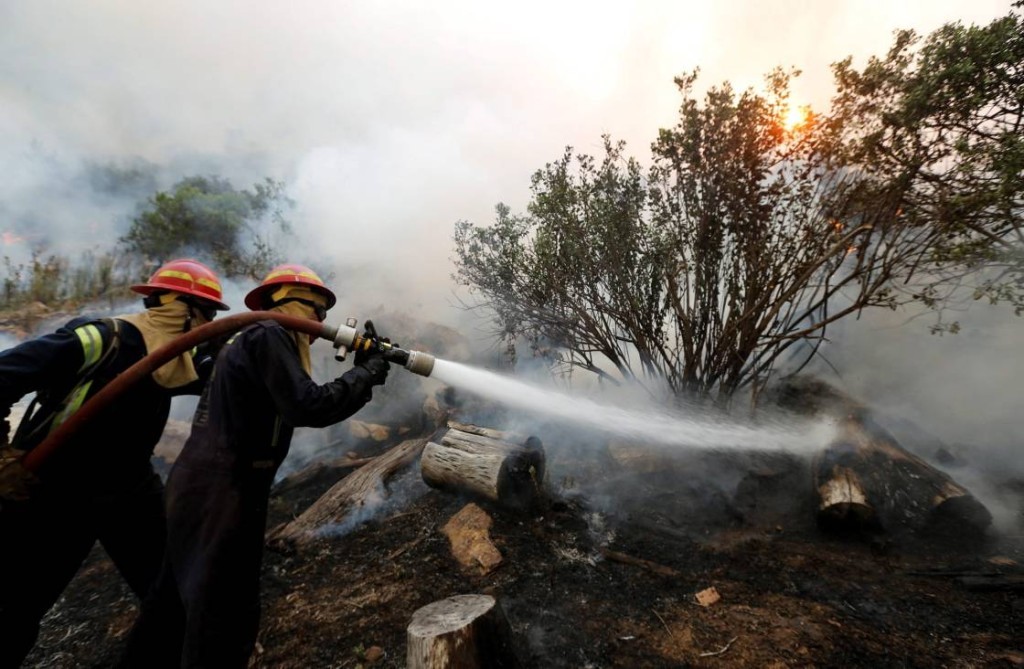
It seems to have become a normalcy that during the hot and dry summer season, wildfires are more prevalent and are difficult to control. Wildfires have the potential to spread out of control and most wildfires are started by people, compared to a small amount which sparks by natural occurrences such as lightning.
Although wildfires can have devastating effects on people’s lives, property and animals, they ’re also important for local ecosystems. For instance, the heat generated by fires help certain types of fynbos plant seeds to germinate.
Lately, there has been speculations on why there so many fires in the Western Cape and who or what is to blame. Global warming has become the latest threat to atmospheric condition. Many of the fires have taken place on days when there’s a heatwave, temperatures soaring into the high 30s and even reaching 42 degrees Celcius.
Other causes of the Cape Town wildfire include Intentional, Smoking, Cooking fires, Burning of debris and Lightning. However, there have been several claims that there were never this many fires, raging for this long, until a few years ago when the City of Cape Town engaged in contracts with Working on Fire (WoF) in which they get paid per days spent fighting fires; and Volunteer Wildfire Services (VWS) who are volunteers that get cash donations.
Some freelance journalists have pointed out that “most of the fires are arson, not to mention the politics that follow.”
So far many firefighting groups have been formed – Volunteer Wildfire Services (VWS), Working on Fire (WOF), Vulcan Fire, Enviro Fire, NCC Fire etc.
